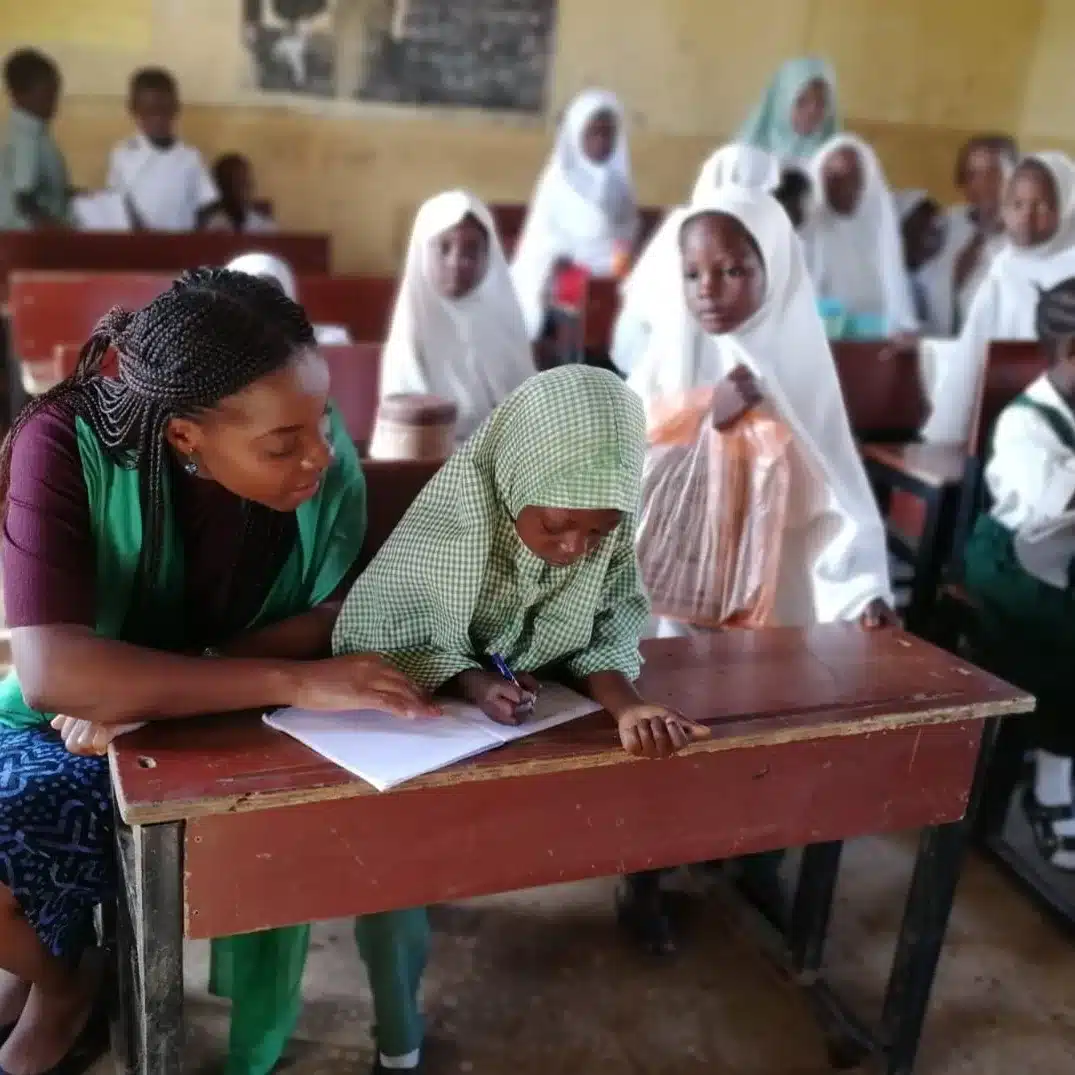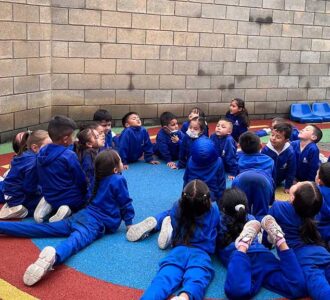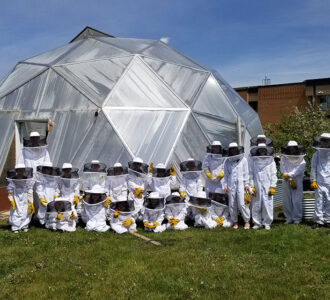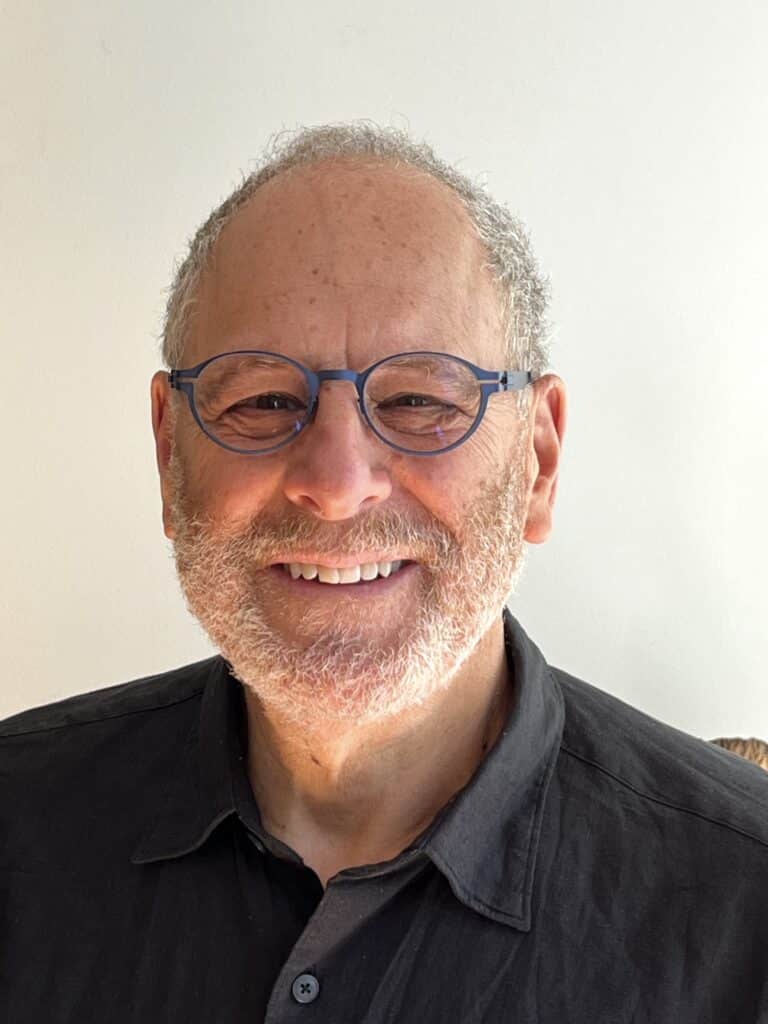
Dr Fred Mednick, Professor Emeritus in Education Sciences at Vrije Universiteit Brussel, founded Teachers Without Borders in 2000 to connect teachers to information and to each other. The aim was to close the education divide. If anything, in the 24 years since, the need to bring teachers together and close that education divide has only grown. And the importance of education, and fundamentally teachers, in answering the great and ever-growing challenges our world faces from climate change to conflict and from poverty to the erosion of democratic freedoms has grown with it.
In the Small Places
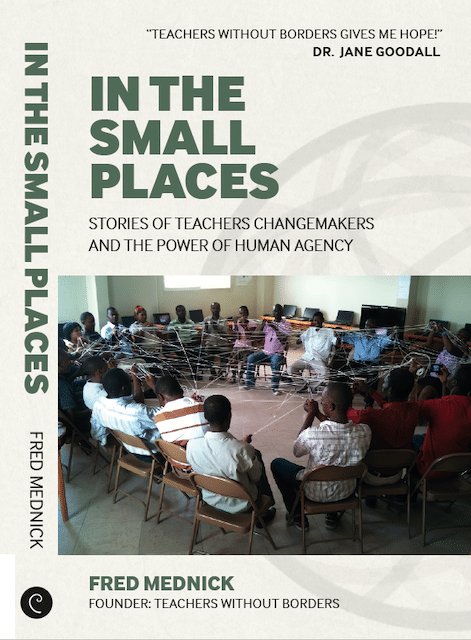
Dr Mednick’s new book, released last week, In the Small Places: Stories of Teacher Changemakers and the Power of Human Agency, is a timely call to action, then. And it was another timely call to action at another pivotal point in human history that inspired it.
“After 20-something years of Teachers Without Borders, I realised who are the heroes – they’re these folks that no one else hears about,” Dr Mednick says, explaining that he took his cue from Eleanor Roosevelt’s speech at the tenth anniversary of the United Nations Declaration of Human Rights. She said: “Where, after all, do universal human rights begin? In small places, close to home – so close and so small that they cannot be seen on any maps of the world. Unless these rights have meaning there, they have little meaning anywhere. Without concerted citizen action to uphold them close to home, we shall look in vain for progress in the larger world.”
The stories in his book are those small places, writ large and Dr Mednick wants to see it as a “lesson plan for hope and constructive, sustainable change”.
Changing lives in challenging circumstances
The actions of teachers can change minds and lives and can ripple far beyond the classroom’s walls. In the Small Places tells stories of teachers as central protagonists in the narrative of global changemaking. Often overcoming quite colossal odds.
“I mean I’ve had teachers who’ve been beaten up, teachers who haven’t been paid, but who nonetheless do this. Sometimes it’s government policy,” Dr Mednick says, describing some of the biggest challenges faced by teachers he spoke to. Teachers have “faced racism, discrimination, active sabotage; then they face fires and floods and earthquakes and a lot of our work in emergency education has to do with addressing the need for preparation and planning rather than just intervention in a disaster. Teachers Without Borders has really been about clearing away obstacles, standing in front and behind the elephant with a shovel so to speak, doing everything we can to remove obstacles so that they can do their jobs.”
Superhuman teachers
Dr Mednick shares the inspirational stories of teachers who seem almost superhuman. One example he gives is in China, where Teachers Without Borders had been working with science teachers for three years in a very successful programme.
“I come home and two weeks later, I hear there’s an earthquake in China. And I hear it’s in the very city that we worked in. We lost teachers. We lost students. We lost buildings. It was the worst thing I’ve ever seen in my life.”
In response, the Director of Education there asked for his help to change the programme with him from science inquiry methods to earthquake science and safety.
Dr Mednick is no seismologist, but he was able to turn to one of the members of Teachers Without Borders – a geoscientist and a teacher named Solmaz Mohadjer who had just finished a programme on earthquake science and safety in Tajikistan, Russia, Afghanistan and Pakistan.
“I went out to see her and I hired her in 20 minutes,” he says. “I knew it when I saw it. She combines this language and culture and awareness of people, with top-rated science. And the programme came to China and went to Haiti. And the White House acknowledged it – it received all sorts of accolades because of her work in connecting science and safety in a classroom climate that allowed for lots of fun, looking at eggs and pulling things apart using bicycle parts to demonstrate.”
Dr Mednick points to a story in the book called Between Bulls and Mosquitoes where kids in Tajikistan believe that there’s a bull beneath the Earth bothered by mosquitoes and it shakes and that’s how earthquakes happen. He says Mohadjer knew how to speak to this kind of language whilst getting children to understand the science and how to stay safe.
In Haiti it was about educating them not to instinctively run inside when there’s any kind of disturbance – because that’s the worst thing to do in an earthquake where schools are poorly constructed.
Societal change
Teachers don’t just impact the lives of their children. A key theme in In the Small Places is impacting societal change. And Dr Mednick wants to see teachers given the recognition they deserve for the tireless work they do transforming lives both in the classroom and on a much grander scale as leaders.
“Teachers have told me that the book reminds them of their initial desire to go into the profession in the first place,” Dr Mednick says. “Teachers can really be disheartened quite easily by the culture and context demeaning teachers, and so it’s about saying stand up and look at what you’ve done – you’re the largest professionally trained group in the world. You’ve got your ear to the ground.”
As Dr Mednick points out, teachers know who is sick, missing, orphaned by disasters, and at risk for human trafficking. Their classrooms are laboratories for democracy, critical thinking, inclusion, justice, and peace-building.
“Simply put, teachers are the glue that holds our fragile social contract together.”
Keeping teachers teaching
“I don’t think teachers are born or made,” Dr Mednick adds. “I think that they show up.”
In the Small Places focuses on teachers who show up to educate children about how to minimise the likelihood of catching a deadly virus even when conspiracy theorists scream that it’s all a hoax. They show up to bolster civility in an era when our social contract is under siege. Who explore challenging subjects despite book bans and censorship. Who shelter children from school shooters or ideological mercenaries bent on ransacking classrooms and trafficking children. Teachers who show up even when the very act of teaching is against the law.
And this can take its toll on teachers. As can the day-to-day realities of teaching in often challenging circumstances.
“What do teachers worry about the most? There are two big things, the research says, and we should address them. The first thing is classroom management, that’s what new teachers are freaked out about, and the second one is: will I ever go out on a date? I mean, I have no social life. I have no freaking life.”
School culture
In answering these questions, school culture and leadership is important and there are different approaches.
Dr Mednick says both tightly run schools and more progressive schools share a respect for children and a respect for teachers where everyone including the school leader is held accountable. That said, his own vision for school is one where “everything has to be sort of fun and joyous and everybody heard – this sweet summer camp feeling”.
But the most important thing is that neither children nor teachers are falling through the cracks – whatever model a school pursues, it’s important that teachers feel supported and they have peers they can talk to and mentorship.
A seat at the top table
Equally important, Dr Mednick believes, is giving teachers a voice and allowing them to be heard.
“They deserve a seat at Davos, on the boards of multinational corporations, at the G8 summit, and in the General Assembly of the United Nations,” he says.
And if people reading his book come away with a better understanding of what teachers do, the tide they so often swim against and the lives they change, the difference they make, then Dr Fred Mednick will have played his part in giving teachers that voice.
